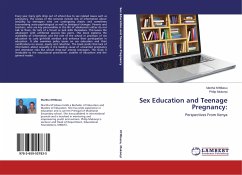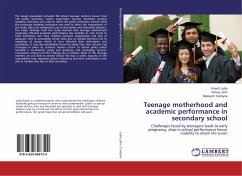In the United States modern knowledge-based economy, a quality education is a basic prerequisite for success. However, troublesome achievement and opportunity gaps persist throughout the entire education spectrum. Benefitting from our nation s post-secondary institutions is now more about ability to pay than ability to achieve. Educators worry that the systems are reproducing class structures, not breaking them down. Credible research suggests that too many capable youth are not reaching their full academic potential. Unable to overcome deficits in economic, social and cultural capital, students do not possess a habitus that propels them to overcome the significant barriers they face in order to make the transition from high school to college. Early intervention is the key to reversing these trends. The middle school years (grades seven and eight) are a particularly important time to build college awareness among disadvantaged youth. This book seeks a greater understanding of thedisparities and deficits among middle school students concerning college awareness and knowledge.
Bitte wählen Sie Ihr Anliegen aus.
Rechnungen
Retourenschein anfordern
Bestellstatus
Storno








